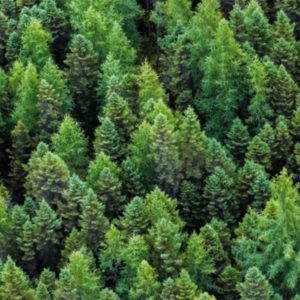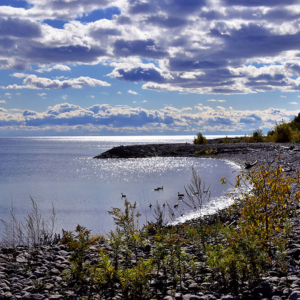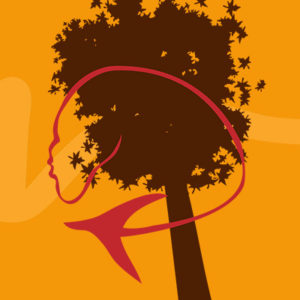Bipoc Youth Face Barriers to Accessing Nature: Nature Groups Need to Do More
Ottawa, ON – May 27, 2021 – Race and Nature in the City, a report commissioned by Nature Canada, reveals that Toronto’s urban nature spaces like ravines and parks are often seen as “white spaces” by BIPOC (Black, Indigenous, people of colour) youth. But researchers from the University of Toronto have a list of recommendations that nature organizations can take to help make urban nature a more safe and welcoming space.
Jacqueline Scott and Ambika Teneti, the lead researchers on the report, conducted focus groups with dozens of BIPOC youth in Toronto, consulted Indigenous experts, and conducted an extensive literature review to arrive at their recommendations. (Read the full report)
“The first step is to take a hard look at ourselves,” says Graham Saul, Executive Director of Nature Canada. “As nature-lovers we’re always promoting the benefits of getting outdoors and connecting with nature. It’s our responsibility to make sure that message is welcoming to everyone. This report shows we’ve got more work to do and some concrete ways we can do it.”
The research was commissioned in early 2020 to guide Nature Canada’s network of nature and conservation partners in the work of incorporating anti-racism and equity in all programming. Much of the fieldwork occurred in the context of worldwide protests in solidarity with the Black Lives Matter movement in response to the killing of George Floyd and Breonna Taylor, and the racial profiling of Christian Cooper, a Black birdwatcher in Central Park, New York.
Race and Nature in the City comes at a critical time when pandemic lockdowns have encouraged record numbers of Canadians to explore and appreciate natural spaces while organizations and communities across Canada are tackling systemic racism at all levels. The report has 22 specific recommendations for nature organizations in 3 broad categories:
- Increase racial diversity in communications
- Promote urban nature and increase access for racialized youth
- Increase comfort in nature through guided activities and education
Nature Canada has committed to the work of incorporating these recommendations in it’s own work and promoting the recommendations among the wider nature and conservation sector including within its own network of over 900 nature organizations.
Jacqueline Scott and Nature Canada’s Policy Director, Gauri Sreenivasan are available for comment/interviews. media@naturecanada.ca | 613-462-4024
Report Excerpts:
This study is significant as it disturbs the waters of environmental discussions in Canada – by including the experiences of youth of colour. These youth, like people of colour in general, are largely invisible in conservation conversations…This study is a bridge between the environmental sector and the lived experiences of youth of colour in nature.
We wanted to go to the valley like a week ago, and my mother was with us and my sister had to pray namaz. But my mother said, “No, don’t pray namaz here”…I don’t know why but she was scared of her praying namaz there.
– Focus group participant
Quotes:
“It is critical for all nature groups to advance anti-racism and equity, and Race and Nature in the City provides practical and timely steps to support that work. Canada’s cities have some of the most beautiful urban naturescapes in the world and it’s our responsibility to ensure that they’re equally accessible to everyone by transforming our culture to one that embraces all communities and brings down systemic barriers.”
Gauri Sreenivasan, Policy and Campaigns Director at Nature Canada
“For young Muslim women, their fears were about how they might be threatened because of their clothing, especially a hijab. For Black youth, it was their skin colour. The fear of the look and the gaze is as real as fear of a racist comment or worse still, violence.”
Jacqueline Scott, Lead Researcher
“If people don’t see themselves in green spaces–and if they don’t feel safe–they will not come. We need more partnerships between nature organizations and agencies serving racialized urban communities. If youth see strong BIPOC role models in leadership roles in nature they’ll be more inspired to see themselves in that space. That’s the goal of these recommendations.”
Ambika Teneti, Lead Researcher
-30-
For more information contact:
Scott Mullenix
613-462-4024
media@naturecanada.ca



